1. Difficulty falling asleep even when feeling SUPER tired!
 Image source: Reddit
Image source: Reddit
This is a hallmark sign of insomnia. Despite feeling physically and mentally exhausted, individuals may struggle to initiate sleep. Factors such as racing thoughts, stress, anxiety, or poor sleep habits can contribute to this difficulty. It can really take over your life.
2. Waking up frequently during the night

Image source: Reddit
Insomnia often involves frequent awakenings throughout the night. These awakenings can disrupt the natural sleep cycle and prevent individuals from experiencing deep, restorative sleep. Common triggers include stress, discomfort, environmental factors, or underlying health conditions.
3. Waking up too early and being unable to fall back asleep
 Image source: Reddit
Image source: Reddit
Some individuals with insomnia may find themselves waking up prematurely, often hours before their intended wake time. Despite feeling tired, they may be unable to return to sleep, leading to further sleep deprivation and fatigue during the day. Worrying about not sleeping makes it worse.
4. Feeling fatigued or exhausted during the day

Image source: Reddit
Insomnia disrupts the body's ability to obtain sufficient restorative sleep, leading to daytime fatigue and exhaustion. Even if individuals spend adequate time in bed, the quality of their sleep may be compromised, resulting in persistent tiredness and difficulty functioning optimally.
5. Difficulty concentrating on tasks

Image source: Salon.com
Sleep is crucial for cognitive function, including attention, concentration, and memory. Insomnia can impair these cognitive processes, making it challenging to focus on tasks, retain information, or perform well at work or school. Frustration can set in and it stresses you out.
6. Irritability or mood swings

Image source: Reddit
Sleep plays a vital role in regulating mood and emotional well-being. Chronic sleep deprivation due to insomnia can lead to irritability, mood swings, and heightened emotional reactivity. Individuals may find themselves more easily frustrated, short-tempered, or emotionally overwhelmed.
7. Increased errors or accidents due to lack of concentration

Image source: BuzzFeed
Insomnia-related cognitive impairment can increase the likelihood of making errors or experiencing accidents, both at work and in daily activities. Reduced attention, slower reaction times, and impaired decision-making may contribute to safety risks and productivity loss.
8. Decreased performance at work or school

Image source: Reddit
Persistent sleep difficulties can significantly impact performance levels in professional and academic settings. Individuals may struggle to meet deadlines, complete tasks accurately, or maintain productivity levels, leading to professional setbacks or academic challenges.
9. Increased susceptibility to illness due to a weakened immune system

Image source: Reddit
Adequate sleep is essential for supporting immune function and resilience against infections. Chronic insomnia can compromise the immune system, making individuals more susceptible to illnesses such as colds, flu, and other infections that re-appear regularly.
10. Dependence on sleep aids or medications to fall asleep

Image source: Reddit
Individuals with insomnia may rely on sleep aids or medications to help them initiate or maintain sleep. While these medications may offer temporary relief, prolonged dependence can lead to tolerance, dependency, and potential side effects, ultimately exacerbating sleep difficulties in the long term.
11. Tossing and turning in bed for extended periods

Image source: Reddit
Insomnia often manifests as difficulty finding a comfortable position and remaining still in bed. Individuals may spend prolonged periods shifting positions, flipping pillows, and attempting to find a comfortable sleeping posture, all of which can prolong the time it takes to fall asleep.
12. Worrying excessively about sleep
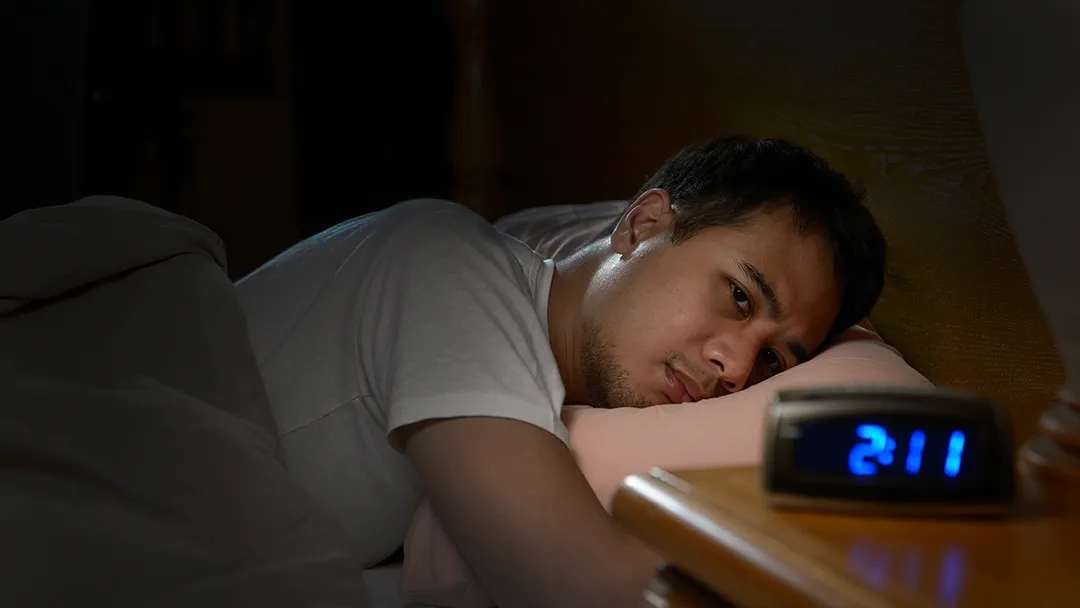
Image source: Universal
Anxiety and worry about the inability to fall asleep or stay asleep can exacerbate insomnia symptoms. Fear of not getting enough rest can create a cycle of stress and anticipation, further hindering the ability to relax and drift into sleep. Looking at the clock ticking by doesn't help matters.
13. Feeling anxious or stressed about not being able to sleep

Image source: Reddit
The pressure to fall asleep can lead to increased anxiety and stress, especially as bedtime approaches. The fear of experiencing another sleepless night can trigger physiological arousal and mental distress, making it even more challenging to achieve restful sleep.
14. Obsessing over sleep patterns and habits

Image source: Reddit
Individuals with insomnia may become preoccupied with tracking their sleep patterns, monitoring their sleep environment, or adhering rigidly to sleep schedules. This obsession can heighten anxiety surrounding sleep and contribute to sleep disturbances.
15. Using electronic devices in bed, which can further disrupt sleep patterns

Image source: Reddit
The use of smartphones, tablets, computers, or televisions in bed exposes individuals to blue light, which can suppress the production of melatonin, a hormone essential for regulating sleep-wake cycles. Additionally, engaging with stimulating content or scrolling through social media can heighten arousal levels and interfere with the body's natural transition to sleep.
16. Experiencing physical discomfort such as muscle tension or headaches due to lack of sleep

Image source: Reddit
Chronic sleep deprivation can exacerbate physical discomfort, including muscle tension, headaches, joint pain, and general body aches. The body's ability to repair and rejuvenate tissues during sleep is compromised, leading to heightened sensations of pain and discomfort during wakefulness.
17. Racing thoughts that prevent relaxation before bedtime

Image source: Verywell Mind
Persistent worries, unresolved concerns, or intrusive thoughts can flood the mind as bedtime approaches, hindering the relaxation necessary for falling asleep. Racing thoughts can activate the body's stress response and perpetuate a cycle of sleeplessness and anxiety.
18. Feeling drowsy or sleepy during daytime activities

Image source: MSM
Daytime sleepiness and fatigue are common consequences of inadequate or disrupted sleep. Individuals may struggle to maintain alertness, focus, and productivity during daytime tasks, leading to impaired performance and to reduced quality of their life.
19. Taking frequent naps to compensate for lack of night time sleep

Image source: Reddit
Napping during the day may provide temporary relief from sleepiness but can disrupt the body's natural sleep-wake rhythm and exacerbate insomnia symptoms. Excessive daytime napping can make it more challenging to consolidate night time sleep and perpetuate the cycle of sleep fragmentation.
20. Difficulty regulating emotions or controlling impulses

Image source: New York Post
Sleep plays a vital role in emotional regulation, mood stability, and impulse control. Chronic sleep deprivation can impair cognitive function and emotional resilience, leading to heightened emotional reactivity, irritability, impulsivity, and difficulty managing stressors.
21. Changes in appetite or weight due to disrupted sleep patterns

Image source: Reddit
Sleep deprivation can disrupt the body's regulation of hunger hormones, leading to changes in appetite and potentially weight fluctuations. Some individuals may experience increased cravings for high-calorie foods, while others may lose their appetite altogether. These changes in eating patterns can contribute to changes in weight over time.
22. Increased sensitivity to light, noise, or other environmental stimuli during sleep

Image source: ResetEra
Insomnia can heighten sensitivity to sensory stimuli, making individuals more susceptible to disturbances such as light, noise, or changes in temperature during sleep. Even subtle environmental factors that may not typically disrupt sleep can become bothersome and contribute to sleep fragmentation.
23. Restlessness or agitation before bedtime

Image source: BuzzFeed
Difficulty winding down and relaxing before bedtime is a common experience for individuals with insomnia. Restlessness, irritability, or feelings of agitation can prevent the mind and body from transitioning into a state conducive to sleep, prolonging the time it takes to fall asleep.
24. Increased heart rate or palpitations at night

Image source: Reddit
Sleep disturbances, including insomnia, can trigger physiological arousal and increase heart rate during sleep. Individuals may experience palpitations, sensations of a racing heart, or heightened awareness of their heartbeat, making it challenging to achieve a state of relaxation and restorative sleep.
25. Sweating excessively during sleep

Image source: Metro UK
Night sweats are a common symptom of sleep disorders, including insomnia. Excessive sweating during sleep can disrupt comfort and lead to awakenings throughout the night. Factors such as hormonal fluctuations, stress, anxiety, or sleep environment temperature can contribute to night sweats in individuals with insomnia.
26. Grinding teeth or clenching jaw during sleep (bruxism)

Image source: Reddit
Bruxism, the involuntary grinding or clenching of teeth during sleep, is associated with sleep disturbances and can be a manifestation of stress or tension. Individuals with insomnia may experience bruxism as a physical response to heightened arousal or anxiety during sleep, further disrupting sleep quality and exacerbating dental problems.
27. Experiencing vivid or disturbing dreams

Image source: Reddit
Insomnia can affect the content and quality of dreams, leading to vivid, intense, or disturbing dream experiences. Disrupted sleep architecture and heightened arousal levels can influence the frequency and intensity of dream recall, impacting overall sleep satisfaction and emotional well-being.
28. Feeling disconnected or detached from reality due to sleep deprivation

Image source: Reddit
Chronic sleep deprivation can distort perception and impair cognitive function, leading to feelings of detachment or disorientation from one's surroundings. Individuals may experience a sense of unreality or disconnectedness, making it challenging to engage fully in daily activities and interpersonal relationships.
29. Experiencing hallucinations or sensory distortions
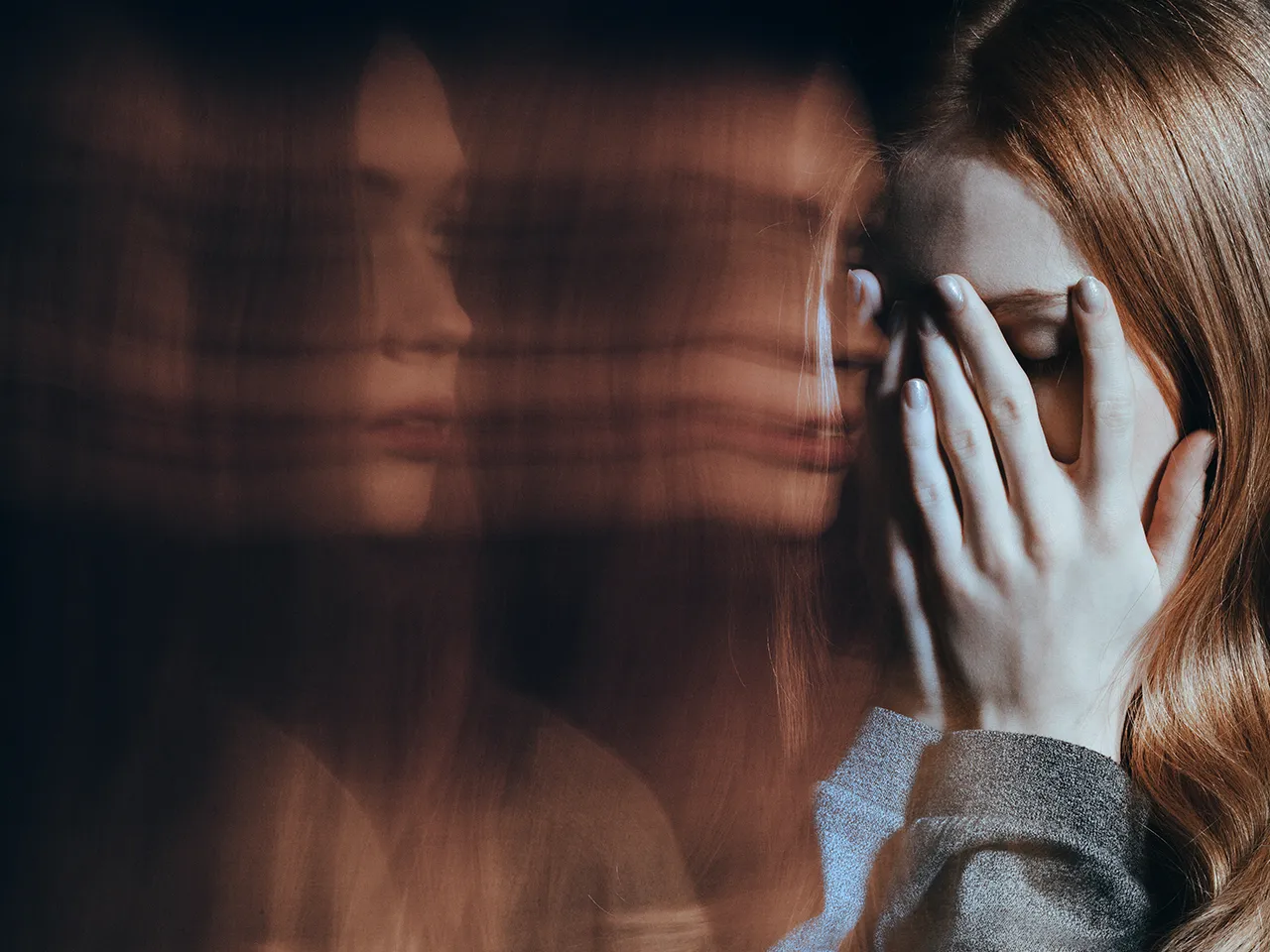
Image source: Self.com
Severe sleep deprivation can precipitate hallucinations or sensory distortions, including visual, auditory, or tactile sensations that occur in the absence of external stimuli. These perceptual disturbances can be alarming and disorienting, indicating significant sleep deficits and potential underlying sleep disorders.
30. Feeling disconnected from others due to fatigue or irritability

Image source: Happy Human
Chronic sleep deprivation can strain interpersonal relationships and contribute to feelings of social isolation or disconnection. Fatigue, irritability, and mood disturbances associated with insomnia may impact communication, empathy, and social engagement, leading to difficulties in maintaining meaningful connections with others.
31. Reduced libido or sexual dysfunction

Image source: BuzzFeed
Chronic sleep disturbances, including insomnia, can disrupt hormonal balance and diminish sexual desire or performance. Sleep deprivation may affect the regulation of hormones involved in sexual function, leading to decreased libido and the problems that arise with that.
32. Difficulty regulating body temperature during sleep

Image source: Reddit
Sleep is essential for maintaining optimal body temperature regulation. Insomnia can disrupt the body's natural thermoregulatory processes, leading to fluctuations in body temperature during sleep. Individuals may experience episodes of feeling too hot or too cold, which can interfere with sleep quality and comfort.
33. Increased susceptibility to accidents or injuries due to impaired coordination and judgment
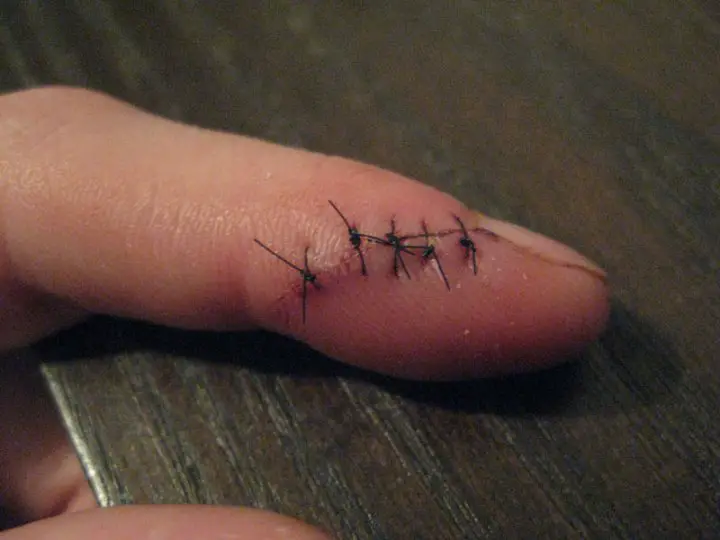
Image source: Reddit
Sleep deprivation impairs cognitive function, including attention, reaction time, and coordination. Individuals with insomnia may experience diminished alertness and impaired judgment, increasing the risk of accidents or injuries during daily activities, driving, or operating machinery.
34. Experiencing memory lapses or difficulty retaining information
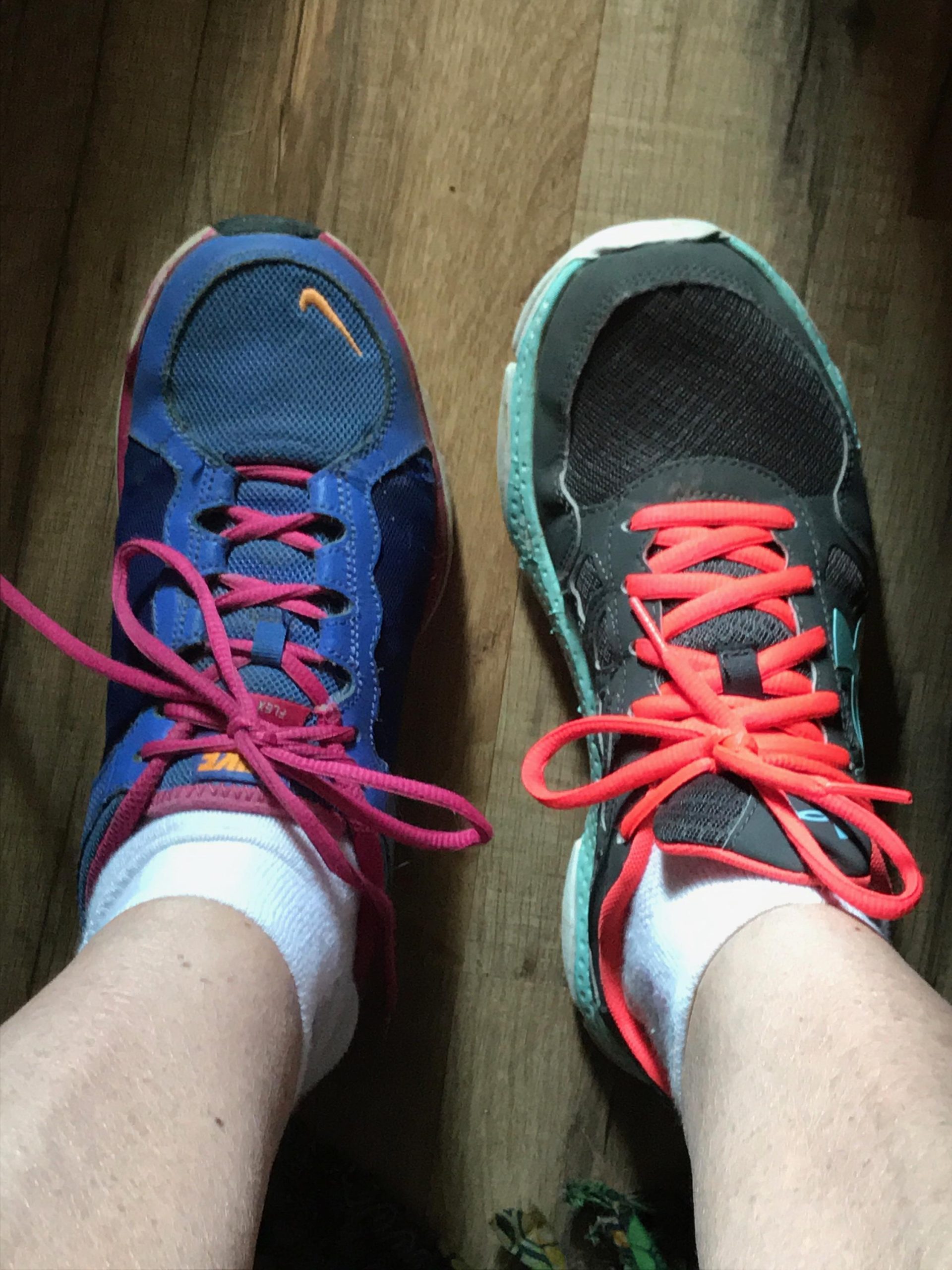
Image source: Reddit
Adequate sleep is essential for memory consolidation and cognitive function. Insomnia can interfere with the brain's ability to process and store information, leading to memory lapses, forgetfulness, and difficulty retaining new information or learning tasks.
35. Feeling emotionally fragile or overwhelmed by everyday tasks

Image source: Reddit
Sleep deprivation exacerbates emotional reactivity and impairs emotional regulation. Individuals with insomnia may experience heightened sensitivity to stressors, increased irritability, mood swings, and feelings of overwhelm in response to everyday tasks and challenges.
36. Experiencing digestive issues such as indigestion or acid reflux at night

Image source: Reddit
Disrupted sleep patterns can exacerbate gastrointestinal symptoms such as indigestion, acid reflux, and heartburn. Poor sleep quality and changes in circadian rhythms may affect digestive processes, leading to discomfort and disturbances during sleep.
37. Increased levels of anxiety or depression

Image source: Reddit
Insomnia and mood disorders, such as anxiety and depression, often co-exist and can exacerbate one another. Sleep disturbances disrupt neurochemical balance and emotional regulation, contributing to the development or worsening of anxiety and depressive symptoms.
38. Experiencing physical pain that worsens at night due to lack of sleep
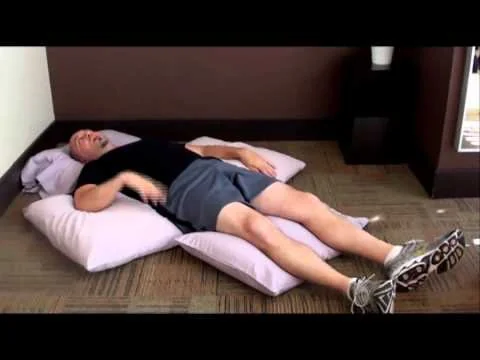
Image source: Reddit
Chronic sleep deprivation can lower the pain threshold and exacerbate existing pain conditions such as headaches, migraines, fibromyalgia, or musculoskeletal pain. Increased pain sensitivity and discomfort at night further disrupt sleep continuity and perpetuate the cycle of sleep disturbances and pain.
39. Feeling socially isolated or withdrawn due to fatigue
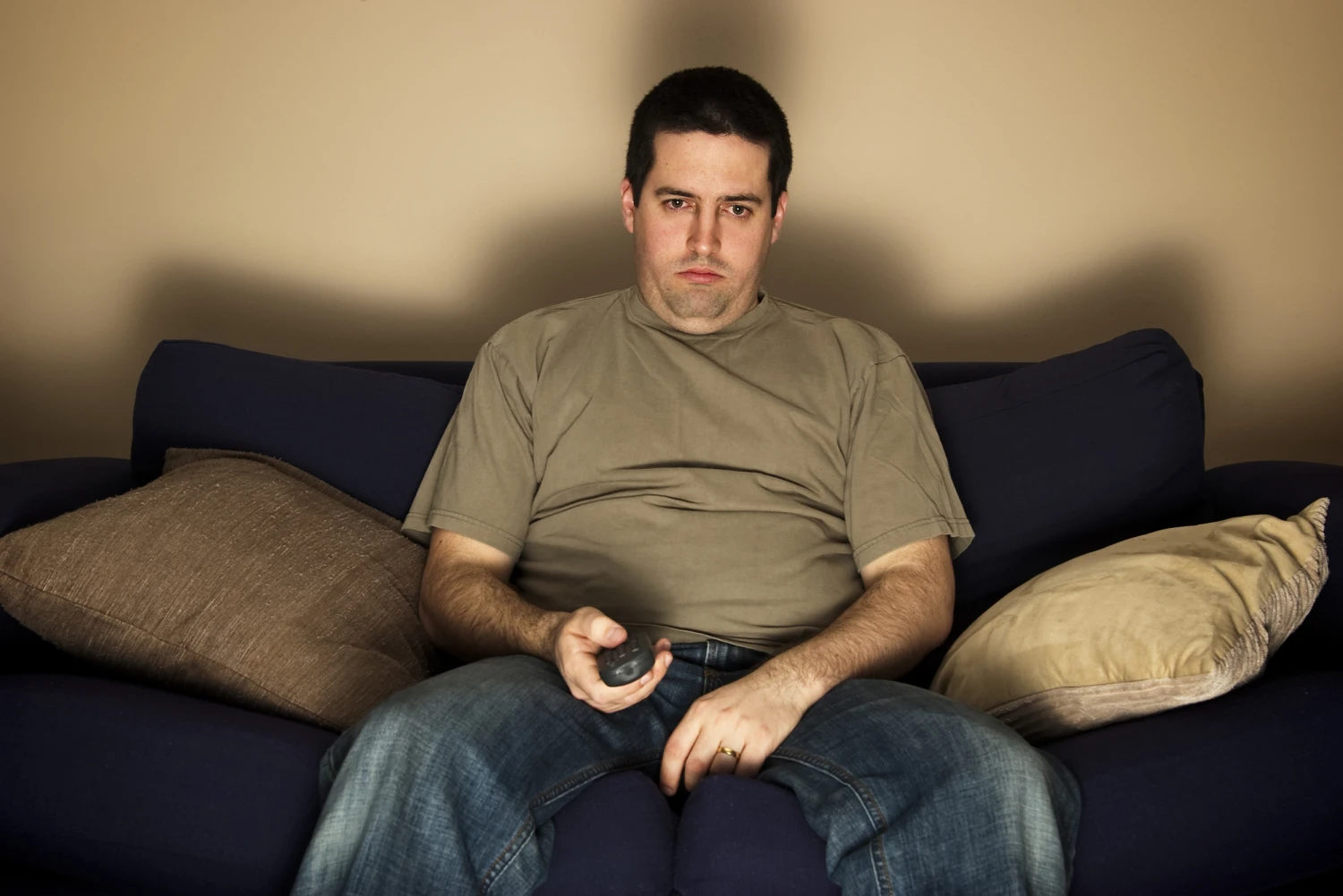
Image source: BuzzFeed
Fatigue and exhaustion resulting from insomnia can impair social functioning and reduce engagement in social activities. Individuals may withdraw from social interactions due to feelings of tiredness, irritability, or difficulty maintaining attention and conversation, leading to social isolation and loneliness.
40. Experiencing changes in vision or hearing sensitivity

Image source: Reddit
Sleep deprivation can affect sensory processing and perception, leading to changes in vision or hearing sensitivity. Individuals may experience blurred vision, light sensitivity, or auditory hypersensitivity, which can impact daily functioning and exacerbate feelings of fatigue and discomfort.
41. Feeling a sense of hopelessness or helplessness about sleep difficulties

Image source: Inform
Persistent sleep difficulties can lead to feelings of hopelessness and helplessness, especially when efforts to improve sleep yield limited results. Individuals may become discouraged and resigned to the idea that they will never experience restful sleep, which can further exacerbate insomnia symptoms.
42. Difficulty maintaining a regular sleep schedule

Image source: CNBC
Consistency in sleep-wake patterns is essential for regulating the body's internal clock and promoting healthy sleep. Insomnia disrupts the ability to maintain a regular sleep schedule, leading to erratic bedtimes and wake times. Fluctuations in sleep timing can further destabilize the sleep-wake cycle and perpetuate insomnia symptoms.
43. Experiencing cravings for caffeine or sugary foods to stay awake during the day

Image source: Reddit
Sleep deprivation diminishes energy levels and alertness, prompting individuals to seek quick fixes such as caffeine and sugary snacks to combat fatigue and maintain wakefulness. However, reliance on stimulants can disrupt sleep further and contribute to a cycle of dependence and poor sleep hygiene.
44. Experiencing a decline in problem-solving skills or creativity

Image source: Enquirer
Adequate sleep is crucial for cognitive function, including problem-solving abilities, creativity, and innovation. Insomnia impairs cognitive flexibility, reduces cognitive processing speed, and diminishes problem-solving skills, limiting individuals' ability to adapt to challenges and generate novel ideas.
45. Feeling physically weak or lethargic due to lack of restorative sleep

Image source: Reddit
Sleep is essential for physical recovery, repair, and rejuvenation. Insomnia disrupts the body's ability to enter restorative sleep stages, leaving individuals feeling physically weak, fatigued, and lethargic. Prolonged sleep deprivation can compromise immune function, increase susceptibility to illness, and impair overall physical well-being.
46. Experiencing changes in speech patterns or difficulty finding words

Image source: Reddit
Sleep deprivation affects verbal fluency, speech articulation, and language processing. Individuals with insomnia may experience difficulty finding words, forming coherent sentences, or articulating thoughts clearly, which can impact communication and interpersonal interactions.
47. Feeling disoriented or confused upon waking up

Image source: Reddit
Poor sleep quality and disrupted sleep architecture can result in feelings of disorientation, confusion, and grogginess upon awakening. Individuals may struggle to transition from sleep to wakefulness, experience mental fog, and require an extended period to regain clarity and alertness.
48. Experiencing changes in appetite or cravings for unhealthy foods

Image source: Reddit
Sleep deprivation disrupts appetite-regulating hormones, leading to alterations in hunger and satiety cues. Individuals may experience increased cravings for high-calorie, carbohydrate-rich foods to compensate for energy deficits and combat fatigue. However, indulging in unhealthy eating patterns can exacerbate sleep disturbances and contribute to weight gain.
49. Experiencing a decline in physical coordination or balance

Image source: Reddit
Sleep deprivation impairs motor coordination, balance, and reaction times, increasing the risk of accidents and injuries. Individuals with insomnia may exhibit clumsiness, unsteadiness, and diminished motor skills, affecting performance in activities that require physical coordination and precision.
50. Feeling a sense of despair or frustration about ongoing sleep disturbances

Image source: Reddit
Chronic insomnia can evoke feelings of despair, frustration, and helplessness as individuals struggle to find relief from persistent sleep difficulties. The cyclical nature of insomnia, characterized by nights of inadequate rest followed by days of exhaustion, can erode optimism and undermine overall well-being.
 Image source: Reddit
Image source: Reddit
 Image source: Reddit
Image source: Reddit













































